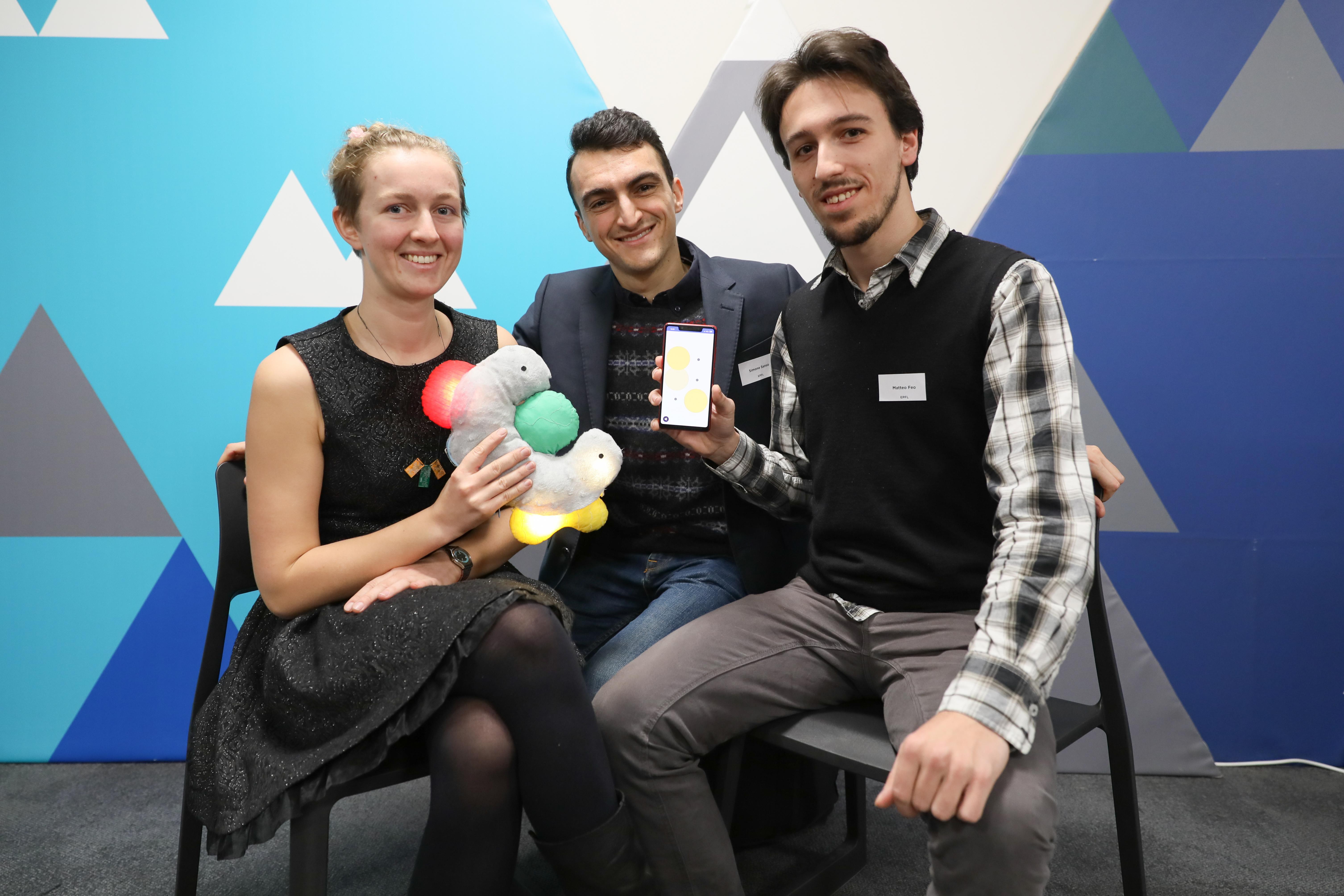EPFL students travel to China to create connected devices

© 2018 EPFL / Alain Herzog
The students who took part in the 2018 China Hardware Innovation Camp presented the results of their work in Renens in mid-December. EPFL holds the camp every year to give students a chance to turn their ideas into prototypes that they manufacture themselves in China.
For the China Hardware Innovation Camp (CHIC), EPFL Master’s students spend 14 months sketching out an idea for a connected device, then travel to China to manufacture a prototype. This gives them a chance not only to experience the entire product development process from design to production, but also to discover the Hong Kong and Shenzhen innovation hub, one of the world’s most vibrant technology and prototyping ecosystems. The program brings together students from EPFL, HEC Lausanne and ECAL, who team up to design original connected devices that could be of genuine interest to consumers. The three prototypes developed during the 2018 CHIC were presented in Renens in mid-December at an event open to the public.
The first prototype, called Flowlin, helps people stay focused while working in open-space offices. “We went through several ideas before coming up with this tiny object that can signal to your colleagues when you don’t want to be disturbed and can block out distractions,” says Axel Nilsson, a microengineering student at EPFL. The device lights up to indicate that you don’t want to be interrupted, puts your smartphone in Do Not Disturb mode and turns off notifications (such as those from social media) on your computer. “We created six prototypes and tested them on people working in open-space offices. The feedback we got was excellent – we’re looking forward to taking the development work further,” adds Nilsson. The team has just received an XGrant from EPFL, designed to help students turn their ideas into a business venture
Technology that helps parents
The second prototype, called Seeki, is a small, connected device that an adult can clip on a child’s clothing to help prevent the child from getting lost in a public place. The device works with a smartphone app, sending alerts if the child strays too far or falls into water. “We thought a device like this would be useful to parents, as well as to schoolteachers and daycare workers, who have to keep tabs on a dozen kids at once,” says Zheng Siqi, a mechanical engineering student at EPFL.
The third prototype, called Toygether, is designed for very young children. It’s a plush toy that connects to a smartphone so that parents can interact and even play games with their children while away from home, such as at work or on a business trip. “Most parents would like to be able to interact with their children remotely without having to go through a screen” says Chloe Dickson, a microengineering student at EPFL. Toygether uses WiFi signals to communicate and can play audio messages, light up and respond to touch.
At the event in Renens, the project teams for the 2019 CHIC also presented their ideas in front of a panel of experts, and got valuable advice from students who had already been through the camp.
CHIC was founded by Marc Laperrouza, lecturer and scientist at EPFL’s College of Humanities. It is sponsored by Vaud Canton, EPFL and HEC Lausanne.






